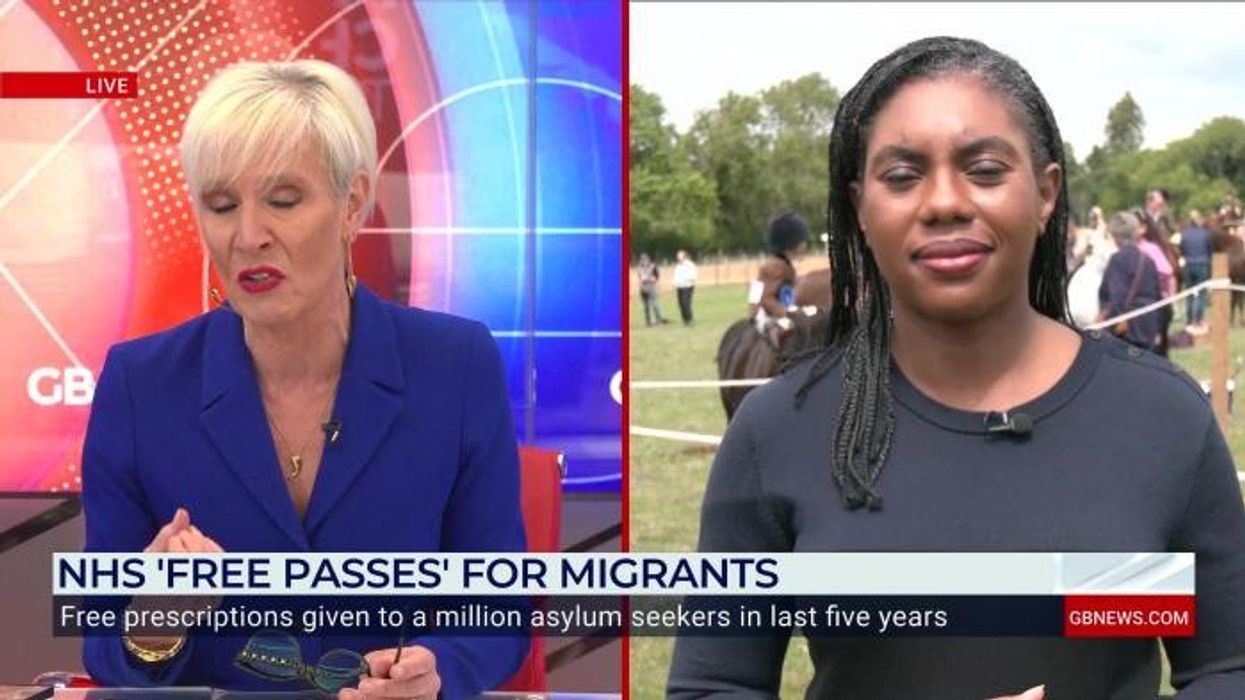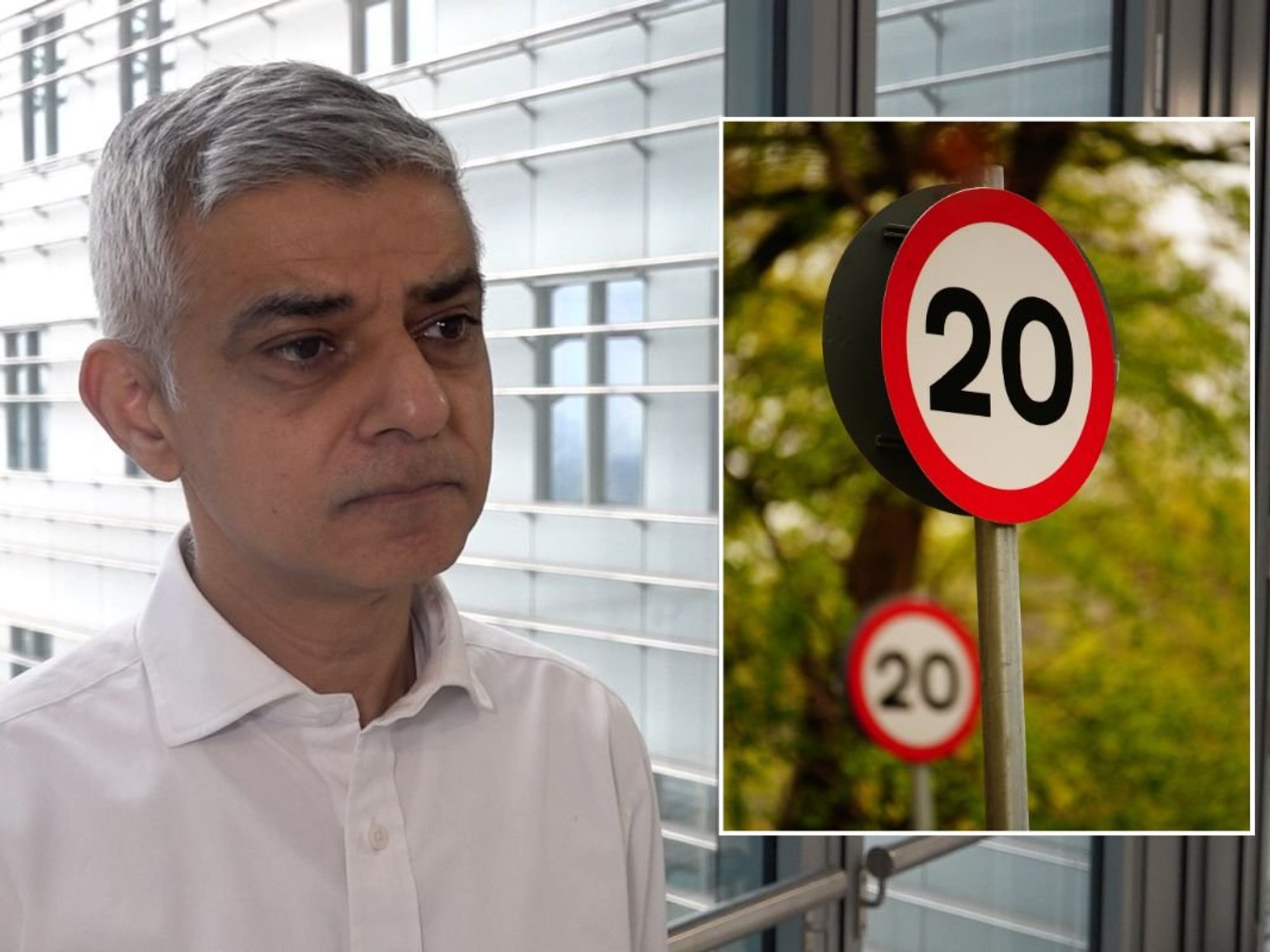Pensioners to get free laptops and phones under new £9.5million fund to get more people online - do you qualify?

A new £9.5 million initiative aims to bridge the UK’s digital divide, helping millions gain essential online skills and access
Don't Miss
Most Read
Pensioners across the country could be given free laptops, smartphones and training as part of a new £500,000 scheme aimed at tackling digital exclusion in England.
The Digital Inclusion Innovation Fund is part of Labour's wider Plan for Change, which the party says will drive economic growth and raise living standards.
The Department for Science, Innovation and Technology (DSIT) explained that digital exclusion is preventing too many people from reaching their potential, and tackling it is seen as vital to driving growth – a key focus of the Government’s Plan for Change.
**ARE YOU READING THIS ON OUR APP? DOWNLOAD NOW FOR THE BEST GB NEWS EXPERIENCE**
Research shows that 7.9 million adults in the UK lack basic digital skills, while 1.6 million people are completely offline.
In England, the Digital Inclusion Innovation Fund is open to local authorities, combined authorities, charities and research organisations. They can apply for grants worth between £25,000 and £500,000. The initiative forms part of a £9.5million UK-wide funding package designed to tackle digital inequality.
DSIT confirmed: "Funding will be awarded based on merit to the highest scoring applications, while ensuring as much as possible that projects are funded across all nine regions of England."
The money will support the best and smartest ways of tackling digital exclusion, which could include putting on workshops to familiarise people with tech, schemes donating devices like phones and laptops to the digitally excluded, all led by local councils, charities and other bodies working in the heart of their communities.
The fund targets five groups most likely to be digitally excluded:
- Low-income households, who may struggle to afford broadband and data.
- Older people, who are less likely to use the internet.
- Disabled people, who are more likely to face barriers due to the digital skills gap and accessibility issues.
- People experiencing unemployment and seeking work, who may be unable to afford broadband, data and devices.
- Young people not in education, employment or training, who may view a lack of digital skills as a barrier to finding work.
Funding is available to support projects in every region of England, with the DSIT saying it wants to boost digital inclusion for as many people as possible, including areas where it has not previously been a priority.

Pensioners to get free laptops and phones under new £9.5million fund
| GETTY IMAGESIn Scotland, Wales and Northern Ireland, the funding will be delivered in partnership with the devolved Governments, which will decide how to distribute the money in their areas. This could involve expanding existing schemes or launching new projects.
Once the funding has been allocated, local authorities and other approved organisations will decide who qualifies for support. This means it may be targeted – for example through means-testing – rather than being open to everyone.
Those most likely to benefit are people who are missing out on some of the basic opportunities modern life offers. This could include learning essential digital skills for work, such as setting up an email account or sharing files.
It could also mean helping those who face higher costs for essentials like home insurance, train travel and food, with some paying up to 25 per cent more than those who are able to shop or book online.
- Rachel Reeves just gifted Richard Tice her chancellorship in 24 hours. Inheritance tax does pay - Kelvin MacKenzie
- Three SHOCK graphs expose who is REALLY crossing the Channel in small boats - and it's NOT women and children
- Mark White's Migration Watch: A mega dinghy and 50,000 arrivals - another disastrous week in the small boats crisis
- You are likely unaware of the term Da’wah. But it is dragging Britain back to the dark ages - James Price
- POLL OF THE DAY: Is the bravery of British soldiers lost in both world wars being forgotten? VOTE NOW

Tackling digital exclusion is seen as vital to driving growth, a key focus of the Government’s Plan for Change.
| PAThis follows June's launch of the IT Reuse for Good charter, where organisations can pledge to donate devices to the digitally excluded.
UK Telecoms Minister Sir Chris Bryant said: "It is unacceptable that in 2025, millions of people across the UK simply can’t access the vast opportunities that technology and the online world offers.
"Digital inclusion is an essential for modern life and work, not just something that’s nice to have, and it forms a critical part of our Plan for Change.
"Making technology widely accessible could be the thing that means a sick patient can speak to a GP remotely, or that helps a young person successfully apply for a job.
"Through this funding we’re moving further to empower local leaders and groups nationwide, who are already working tirelessly to get their communities connected and change countless lives for the better."
The fund is being targeted at local organisations because they are best placed to understand and address the specific needs of their communities.
Where new and innovative approaches to tackling digital exclusion prove effective, the aim is to use the results from this fund to roll them out more widely across the country.
The launch of the Digital Inclusion Innovation Fund fulfils a key pledge in the Digital Inclusion Action Plan published earlier this year.

Addressing digital exclusion is seen as essential to improving living standards nationwide
| GETTYThis plan set out the Government’s first steps to address digital exclusion, ensuring technology can be accessed and used by everyone in the UK, while also helping to drive growth and improve living standards under the Plan for Change.
Addressing digital exclusion is seen as essential to improving living standards nationwide.
It can help more people apply for jobs online, use the NHS app to book GP appointments, and access advice on Government services through tools like GOV.UK Chat.











